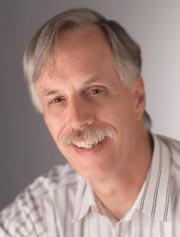Edward Groth, III
 Edward (Ned) Groth III was born in Somerville, New Jersey, USA on September 28, 1944. He received an A.B.
in Biology from Princeton University in 1966 and a Ph.D. in Biological Sciences from
Stanford University in 1973. His dissertation was titled “Two Issues of Science and
Public Policy: Fluoridation of Community Water Supplies and Air Pollution Control
in the San Francisco Bay Area.” His thesis research under the direction of Professor
Paul Ehrlich concerned the interplay between scientific, political and other factors
in environmental and public health policymaking.
Edward (Ned) Groth III was born in Somerville, New Jersey, USA on September 28, 1944. He received an A.B.
in Biology from Princeton University in 1966 and a Ph.D. in Biological Sciences from
Stanford University in 1973. His dissertation was titled “Two Issues of Science and
Public Policy: Fluoridation of Community Water Supplies and Air Pollution Control
in the San Francisco Bay Area.” His thesis research under the direction of Professor
Paul Ehrlich concerned the interplay between scientific, political and other factors
in environmental and public health policymaking.
Dr. Groth did post-doctoral research on the environmental impacts of population growth at the California Institute of Technology, from 1973 to 1974. From 1975 to 1979, he was on the staff of the Environmental Studies Board of the National Research Council, at the US National Academy of Sciences (NAS), in Washington, D.C., where he worked on an evaluation of environmental research needs, helped develop multi-disciplinary approaches for assessing risks and control options for pollutants, and directed a study on lead in the human environment.
In 1979, Dr. Groth joined Consumers Union of United States, the publisher of Consumer Reports magazine, an independent consumer testing and publishing organization, as Director of Public Service Projects. Until his retirement in 2004, Dr. Groth gave the organization’s technical and editorial staffs scientific advice on a wide array of health and environmental risks issues related to consumer products. His central interests were food safety, toxic chemicals, risk assessment, and risk communication. He participated, as a consumer advocate, in public debates and dialogues with government agencies on myriad health and safety issues. Dr. Groth was also active in the global work carried out by Consumers International, of which CU is a founding member, on similar issues, particularly international food safety standards.
Dr. Groth is the author of numerous papers and technical reports and a co-author of several books. He has served on many expert committees and advisory boards, including the Committee on Agricultural Biotechnology, Health and the Environment of the U.S. National Research Council; the Food Forum of the U.S. National Academy of Sciences, a Joint Expert Consultation on Risk Communication in Food Safety for the World Health Organization and Food and Agriculture Organization of the United Nations (WHO/FAO) and a WHO/FAO Expert Consultation on Science and Ethics in Food Safety. He has traveled widely in recent years to advise the WHO and FAO and their member governments on such issues as methylmercury in fish, the application of risk analysis to food safety, risk communication, and public participation in food safety decision-making.
